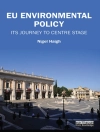Charles Goodsell has long taken the position that U.S. bureaucracy is neither a generalized failure nor sinkhole of waste as mythologized by anti-government ideologues. Rather, it is one of the most effective and innovate sets of administrative institutions of any government in the world today. Indispensable to our democracy, it keeps government reliable and dependable to the citizens it serves. However,
The New Case for Bureaucracy goes beyond empirically verifying its quality. Now an extended essay, written in a conversational tone, Goodsell expects readers to form their own judgments. At a time when Congress is locked in partisan and factional deadlock, he argues for the increased importance of bureaucrats and discusses how federal agencies must battle to keep alive in terms of resources and be strong enough to retain the integrity of their missions. While bureaucracy is not a substitute for policymaking by elected officials, it keeps the machinery of government running smoothly to meet the ever changing needs of the country, despite the challenges of federal sequester and shutdown.
Tabela de Conteúdo
1. WHAT, DEFEND BUREAUCRACY?
2. Electoral Context and Strategy
3. BUREAUCRATS FRONT AND CENTER
4. INSIDE BUREAUCRATIC GOVERNANCE
5. EARNING AND RETAINING THE PUBLIC TRUST
Sobre o autor
Charles T. Goodsell is a retired Professor Emeritus of Public Administration at the Center for Public Administration and Policy at Virginia Tech in Blacksburg. His previous books on public administration are Mission Mystique (2011), The Case for Bureaucracy (1983, 1985, 1994, 2004), Public Administration Illuminated and Inspired by the Arts (co-edited, 1995), The Public Encounter (edited, 1981), and Administration of a Revolution (1965). Other works include The American Statehouse (2001), The Social Meaning of Civic Space (1988), and American Corporations and Peruvian Politics (1974). He has lectured and spoken on bureaucracy throughout the United States and in Canada, Mexico, Great Britain, Australia, and China. He has published 13 books over a 60-year career and is one of the nation′s best known advocates for American public service. He was a founding faculty member of Virginia Tech′s Center for Public Administration and Policy, and retired in 2002, but continues writing.












